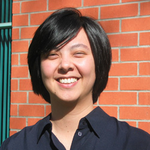

2003 Ph.D. Electrical Engineering, Caltech
1998 M.S. Electrical Engineering, Caltech
1997 B.S. Engineering and Applied Science, Caltech
ellis [dot] meng [at] usc [dot] edu
Ellis Meng is the Shelly and Ofer Nemirovsky Chair of Convergent Biosciences and Professor of Biomedical Engineering and Electrical and Computer Engineering in the Viterbi School of Engineering at the University of Southern California where she has been since 2004. She is also the Vice Dean of Technology Innovation and Entrepreneurship. She was previously Dwight C. and Hildagarde E. Baum Chair of the Department of Biomedical Engineering from 2015-2018 and an inaugural holder of a Gabilan Distinguished Professorship in Science and Engineering from 2016-2019. She received the B.S. degree in engineering and applied science and the M.S. and Ph.D. degrees in electrical engineering from the California Institute of Technology in 1997, 1998, and 2003, respectively. Her research interests include biomedical microelectromechanical systems (bioMEMS), implantable biomedical microdevices, microfluidics, integrated microsystems, microsensors and actuators, biocompatible polymer microfabrication, and packaging. Her honors include the NSF CAREER award, Wallace H. Coulter Foundation Early Career Award, 2009 TR35 Young Innovator Under 35, Viterbi Early Career Chair, ASEE Curtis W. McGraw Research Award, 2018 IEEE Engineering in Medicine and Biology Society Technical Achievement Award, and 2019 IEEE Sensors Council Technical Achievement Award. She is a fellow of NAI, IEEE, ASME, BMES, and AIMBE. She serves as the North American representative on the IEEE Engineering in Medicine and Biology Society AdCom. She is on the editorial board of the Journal of Microelectromechanical Systems, Journal of Micromechanics and Microengineering and Frontiers in Mechanical Engineering, Micro- and Nano-mechanical Systems. She was co-chair of the 2017 IEEE MEMS conference. She is also an inventor, co-founder of two companies based on her research, and author of a textbook on bioMEMS.


yangong [at] usc [dot] edu
Yan Gong is a postdoctoral scholar in the Biomedical Microsystems Laboratory at the University of Southern California.


2016, B.S. Paris Saclay University
2018, M.S. Paris Saclay University
2022, Ph.D. University of Lille
rezard [at] usc [dot] edu
Quentin Rezard is a 31-year-old French postdoctoral researcher at the USC Biomedical Microsystems Laboratory. After completing a B.S. in Applied Physics, he specialized in using microtechnology for biological application during his M.S. at Paris Saclay University. He then completed his Ph.D. in 2022 at the University of Lille under Professor Mehmet Çagatay Tarhan, with a research focus on developing a microelectromechanical device to detect circulating cancer cells. His research interest explores the development of microtechnology for biomedical sensing, focusing on MEMS systems, microfluidic and polymers. Following this path, his current work entails the development of an implantable flexible microelectrode to stimulate the peripheral neural system.
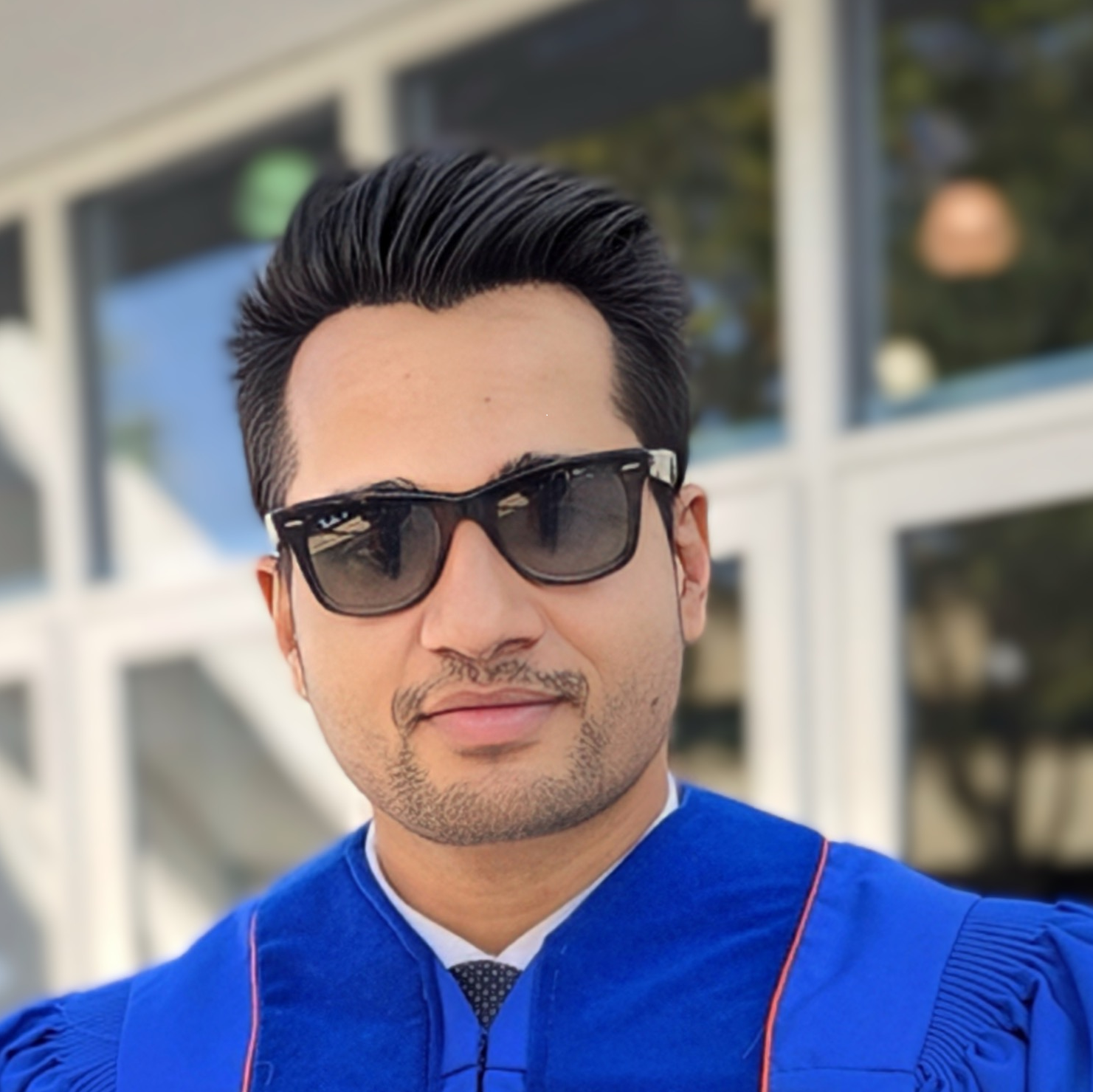

2017, M.S. Mechanical and Aerospace Engineering, University of Florida
2022, Ph.D. Electrical & Computer Engineering, University of Florida
prustogi@usc.edu [at] usc [dot] edu
Paritosh Rustogi completed his Master's degree in 2017 and Doctorate degree in 2022 from the University of Florida, in the Department of Mechanical and Aerospace Engineering and Electrical & Computer Engineering, respectively. During his tenure at UF, he collaborated closely with Dr. Jack Judy on projects involving the design, micro-fabrication, packaging, and validation of polymer-based thin-film flexible neural probes for animal studies. His work also included developing FEA-based models of microelectrodes implanted in nerves. Paritosh's thesis focused on the development and design of an 'Implantable-Reconnectable-Reliable Connector for High-Channel-Density Thin-Film Neural Interfaces.' Following his work at UF, Paritosh continued his research at USC, concentrating on the microfabrication and evaluation of thin-film parylene neural probes for recording and stimulation in animal studies. He has authored several publications and holds two patents in this field, with one approved and another pending. His research interests are flexible electronics, biosensors and MEMS.


2019, B.S. Biomedical Engineering, University of Michigan-Ann Arbor
nbarrera [at] usc [dot] edu
Nick completed his bachelor's degree in Biomedical Engineering at the University of Michigan in 2019. Through his undergrad, he assisted in the Bruns Lab studying closed loop therapy for overactive bladder. In the summer of 2018, Nick worked in Dr. Il-Joo Cho's for a summer research program, assisting in the development of MEMS neural interfaces. In 2020, Nick worked as an R&D intern at Avation Medical, where he worked on developing devices for treating overactive bladder. He began his graduate studies in BME at USC in 2020 and is interested in neural interfaces and bioelectronic medicine. In his free time, Nick enjoys gaming, game development and drawing.


2022, B.S. Biomedical Engineering (Electrical Engineering), University of Southern California
2023, M.S. Biomedical Engineering, University of Southern California
ruitongc [at] usc [dot] edu
Ruitong completed his bachelor's degree in Biomedical (Electrical) Engineering at USC in 2022. His research interests include implantable and wearable MEMS devices. His undergrad research focuses on electrochemical biosensors and was under the guidance of Dr. Maral Mousavi. During his graduate study he wants to engineer the next generation wearable and implantable devices towards personalized and precision medicine. His free time is spent reading, playing sports and exploring different restaurants.


2022, B.S. Biomedical Engineering, Case Western Reserve University
yingyiga [at] usc [dot] edu
Yingyi Gao completed her bachelor's degree in biomedical engineering at Case Western Reserve University in 2022. While at Case, she assisted in Dr. Shoffstall’s lab studying injectable resorbable electrodes for transient electrical stimulation. She began her graduate studies in Biomedical Engineering at USC in 2022, with research focused on neurological and bioelectronic medical device development. In her free time, she enjoys traveling, exercising, playing video games and building LEGO.


2015 B.S. Biomedical (Electrical) Engineering, USC
2009 B.M. Music Composition, Biola University
larsonce [at] usc [dot] edu
![]() https://orcid.org/0000-0002-7837-6847
https://orcid.org/0000-0002-7837-6847
Christopher Larson completed his bachelor's degree in Biomedical (Electrical) Engineering at USC in 2015. His research interests include implantable MEMS devices and neural interfaces, especially as applied in bioelectronic medicine. He previously studied music composition and still makes music. Originally from "Minnesconsin," he enjoys smoky cheeses, bratwursts, craft brews, and cheering on the Twins and Vikings no matter how often they break his heart. His free time is spent reading, hiking, roadtripping, and eating with his wife and dog.


B.S. Mechanical Engineering, UC Santa Barbara
mli26767@usc.edu [at] usc [dot] edu
Max is a member of the bioMEMS Lab.


2022, B.S. Biomedical Engineering, UC Irvine
liangjea [at] usc [dot] edu
LinkedIn
JingJing (Jeannie) finished her bachelor’s degree from the Biomedical Engineering Department at UCI Samueli School of Engineering in June 2023. As an undergraduate student, she was performing research under Dr. Ronke Olabisi on tissue engineering and materials, specifically investigating the potential of nacre as bone cement. She joined the BioMEMS lab at USC in 2023 as a PhD student and hopes to develop devices and sensors for various medical applications. In her free time, Jeannie enjoys playing video games and riding her motorcycle.
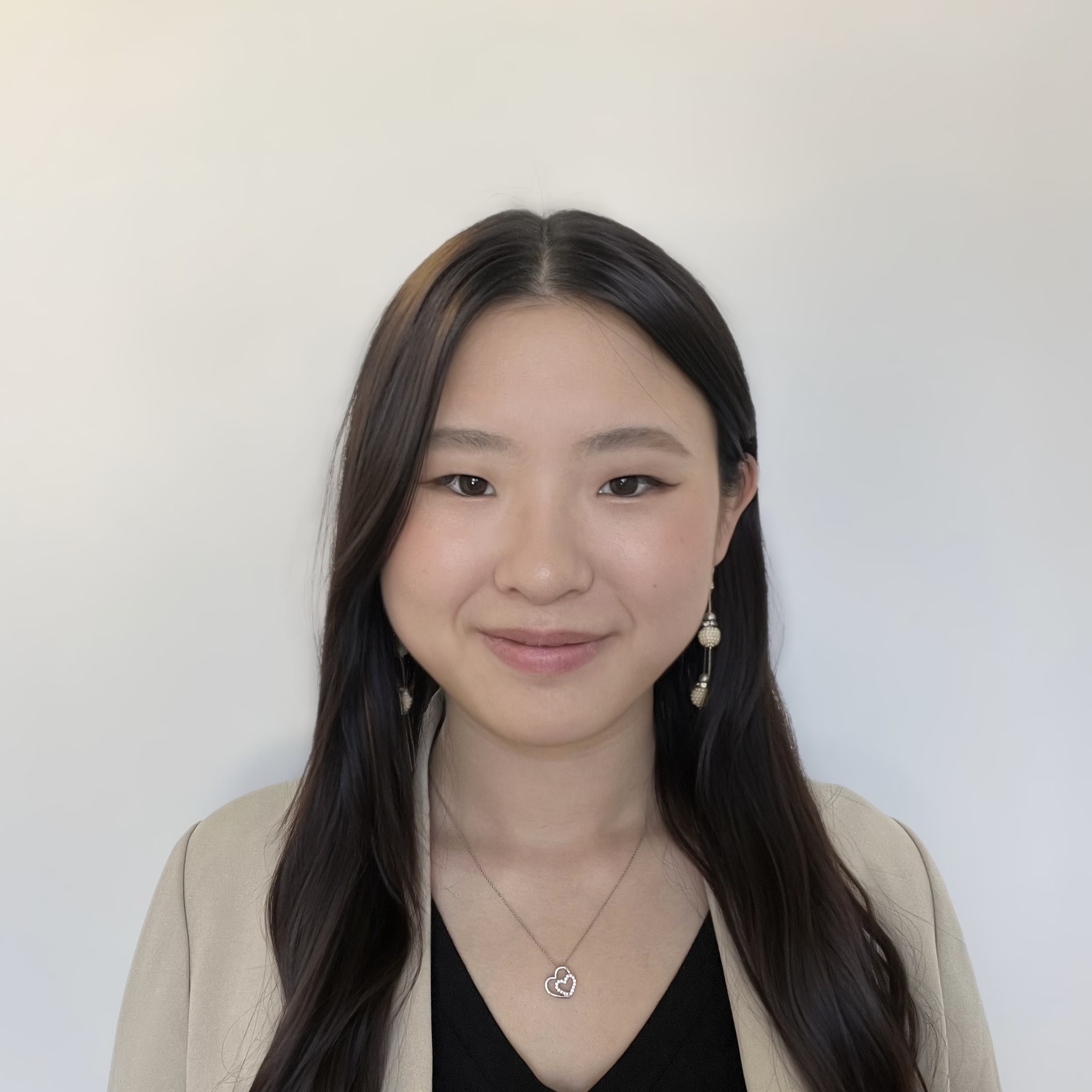

2024, B.S. Biomedical Engineering, UC Irvine
chr.ly [at] usc [dot] edu
Christine graduated from the University of California, Irvine in June 2024 with a bachelor's degree in Biomedical Engineering and a minor in Biological Sciences. Among her academic, professional, and entrepreneurial experiences as an undergraduate, she managed DermaVision, a student-led project advised by Dr. Elliot Botvinick that aimed to develop a multispectral portable camera for bruise characterization in underrepresented domestic violence survivors. In addition, she led NeoMold to create a 3D-printable customizable ear mold to correct congenital outer ear deformities. She also interned at Jabil as an Engineering Intern and at MicroVention-Terumo as an R&D Intern in the neurovascular liquid embolics department. Christine joined the BioMEMS lab at USC as a graduate student in August 2024 with the support of the USC Annenberg and Viterbi Fellowships and a keen interest in neural medical device development.


2022, B.S. Mechanical Engineering, California State University Los Angeles
er88866 [at] usc [dot] edu
LinkedIn
Emmanuel completed his bachelor's degree in Mechanical Engineering, with a minor in Biomedical Engineering, at CSULA in 2022. His undergraduate research focused on low-cost biodegradable fuel cells and batteries under the guidance of Dr. Frank Gomez. He joined the BioMEMS lab at USC in 2022 as a Ph.D. student. His free time is spent 3D printing, playing video games, drawing, and cooking.
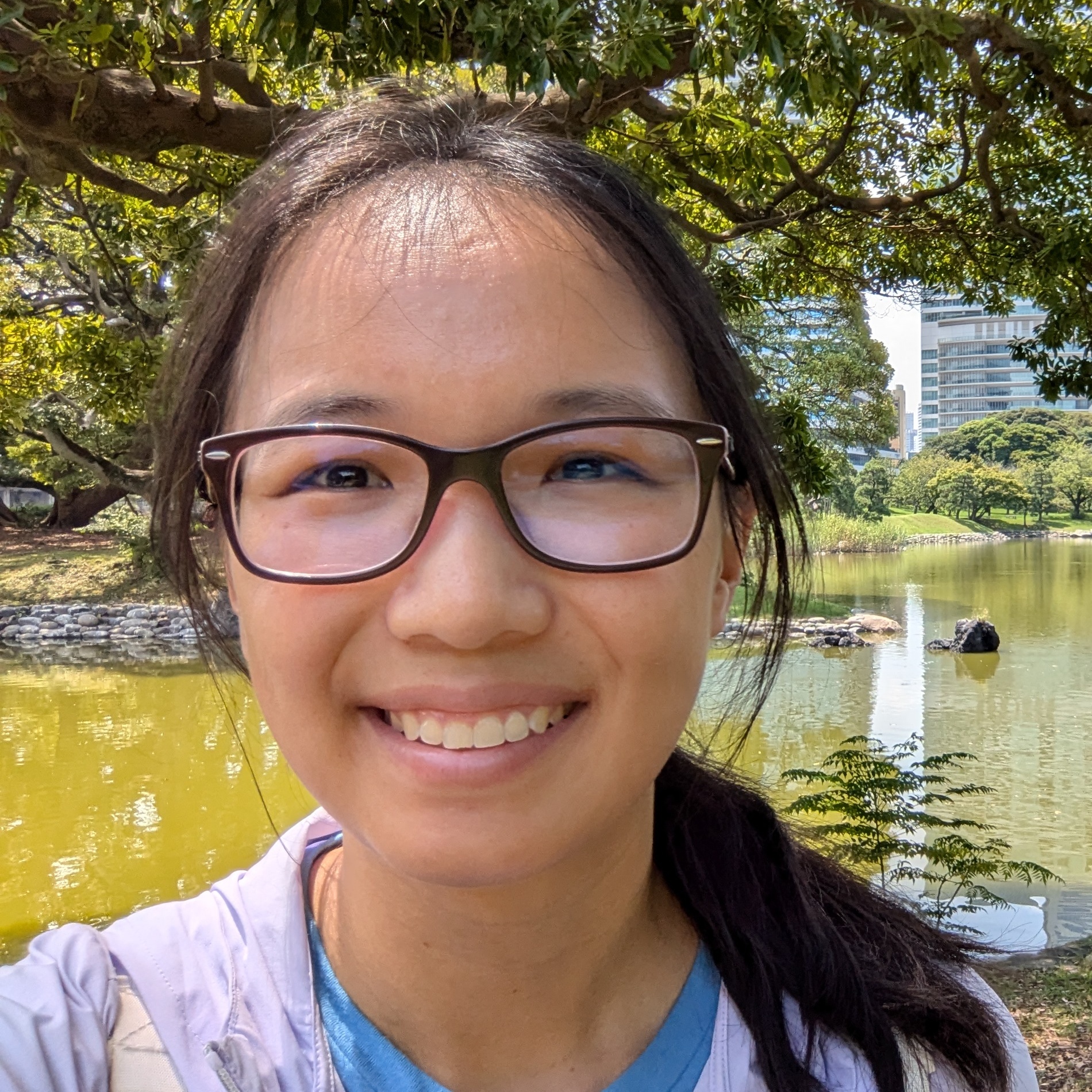

2020, B.S. Bioengineering, UC Berkeley
jinghuaw [at] usc [dot] edu
LinkedIn
Jenna graduated from UC Berkeley in 2020 with a BS in Bioengineering and minors in Electrical Engineering and Computer Science (EECS) and Music. Afterwards, she worked at Triple Ring Technologies developing medical devices and in-vitro diagnostic systems for various client projects and government R&D grants. A few of her roles included system integration for a microfluidics-based cannabis breathalyzer platform, design verification for a blood chemistry analyzer, and electrical system design and printed circuit board design for several ultra low-cost biomedical instruments. Jenna joined the BioMEMS lab in 2024 and is interested in developing implantable medical devices and working with implantable materials. In her free time, she enjoys traveling, writing, reading, and making and drinking any type of tea.


2018 Ph.D. Biomedical Engineering, USC
2015 M.S. Biomedical Engineering, USC
2013 B.S. University of Arkansas
abbaldwi [at] usc [dot] edu
Alex Baldwin received a B.S. degree in electrical engineering from the University of Arkansas, Fayetteville in 2013 and the M.S. and Ph.D. degrees in biomedical engineering from the University of Southern California (USC) in 2015 and 2018, respectively. His research interests include polymer micromachining, implantable biomedical sensors, and novel microelectromechanical devices which operate using electrochemical impedance. Dr. Baldwin is a recipient of the USC Viterbi Fellowship and the Alfred E. Mann Institute Fellowship. He is currently working on improving the treatment of hydrocephalus using chronically implanted wireless sensors.
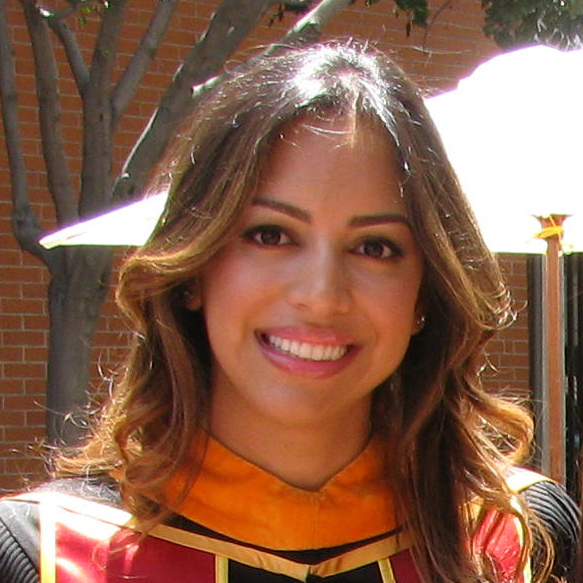

2017 Ph.D. Biomedical Engineering, USC
2012 M.S. Biomedical Engineering, USC
2008 B.S. Biomedical Engineering, Florida International University


2013 Ph.D. Biomedical Engineering, USC
2009 M.S. Biomedical Engineering, USC
2008 B.S. Biomedical Engineering, University of Texas, Austin
2008 B.A. German, University of Texas, Austin


2011 Ph.D. Biomedical Engineering, USC
2006 M.S. Electrical Engineering, Caltech
2005 B.S. Electrical Engineering, Caltech
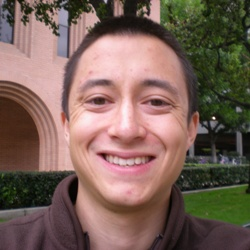

2015 Ph.D. Biomedical Engineering, USC
2013 M.S. Biomedical Engineering, USC
2008 B.S. Engineering, Swarthmore College


2016, B.S. Biomedical Engineering, University of Wisconsin-Madison
2018, M.S. Electrical Engineering, University of Pennsylvania
phu [at] usc [dot] edu
Ping received her bachelor’s degree in Biomedical Engineering from University of Wisconsin- Madison in May 2016. She then pursued a master’s degree in Electrical Engineering from University of Pennsylvania. During her undergraduate and graduate study, she participated in various projects such as ECG system design and wideband trans-impedance amplifier design. During her PhD study, she hopes to develop implantable neural interfaces for diagnosis and treatment of neurological disorders. Her interests include cooking, reading, and traveling.


2014 B.S. Bioengineering, Rice University
tqhudson [at] usc [dot] edu
Trevor graduated from Rice University with a BS in Bioengineering in 2014. He helped develop a novel cell-sorting device at part of a summer internship at the Naval Research Lab in Washington, D.C. in 2013. In 2015, he joined the USC BML, and is currently working on a device to wirelessly detect shunt failure in hydrocephalic patients. In his free time he enjoys good television, exercising, and improving his poor cooking skills.


2015 Ph.D. Biomedical Engineering, USC
2013 M.S. Biomedical Engineering, USC
2010 B.S. Biomedical Engineering, Duke
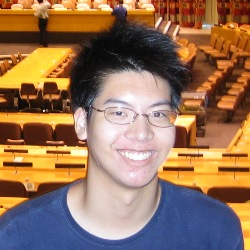

2013 Ph.D. Biomedical Engineering, USC
2013 M.S. Biomedical Engineering, USC
2007 B.S. Biomedical Engineering, UC San Diego


2015 Ph.D. Biomedical Engineering, USC
2013 M.S. Biomedical Engineering, USC
2008 M.S. Metallurgical Engineering, University of Utah
2005 B.S. Metallurgical Engineering, University of Utah
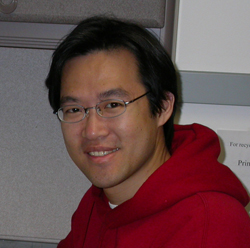

2009 Ph.D. Biomedical Engineering, USC
2004 M.S. Material Science, USC
2001 M.S. Power Mechanical Engineering, National Tsing Hua University, Taiwan
1996 B.S. Mechanical Engineering, Tatung Institute of Technology, Taiwan


2017, B.S. Mechanical Engineering, Tennessee Technological University
2023, Ph.D. in Mechanical Engineering at Vanderbilt University
estebanl [at] usc [dot] edu
Alberto Esteban Linares is a postdoctoral scholar in the Biomedical Microsystems Laboratory at the University of Southern California. Alberto received a B.S. degree in Mechanical Engineering from Tennessee Technological University (2017). He then spent a year at Oak Ridge National Laboratory as a Post-Bachelor Researcher working in the Material Science and Technology division. Alberto completed his Ph.D. in Mechanical Engineering at Vanderbilt University under Prof. Deyu Li in 2023, with a research focus on microfluidic platforms with integrated actuating and sensing capabilities for retina electrophysiology studies. In 2023, he joined BML and is currently developing flexible penetrating brain implants for chronic recording studies, and creating cuff electrodes capable of interfacing with small peripheral nerves (≤ 1 mm in diameter) of the parasympathetic nervous system for neurostimulation. In his free time, Alberto enjoys playing tennis and soccer, skiing, cooking and reading.
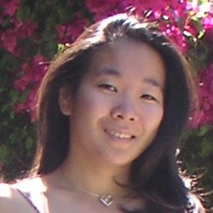

2009 Ph.D. Biomedical Engineering, USC
2005 M.S. Biomedical Engineering - Medical Devices and Diagnostic Engineering, USC
2001 B.S. Engineering, Harvey Mudd College


2019 Ph.D. Biomedical Engineering, USC
2013 B.S. Mechatronics Engineering, National Autonomous University of Mexico (UNAM)
jortigoz [at] usc [dot] edu
Jessica Ortigoza-Diaz received the B.S. degree in Mechatronics Engineering from the National Autonomous University of Mexico (UNAM) in 2013 and the M.S. degree in biomedical engineering from the University of Southern California (USC) in 2018. In 2012, She did a Summer Research Internship at the Biomedical Microsystems Lab where she worked on the development of wireless drug delivery devices. Since 2014, she joined USC, as a PhD student in Biomedical Engineering, where she was awarded the CON-USC Graduate Scholarship. She is currently working on strategies to improve dry and wet adhesion between polymer-polymer and polymer-metal interfaces to enhance polymer-based devices lifetime. Jessica enjoys traveling, football, music and movies.
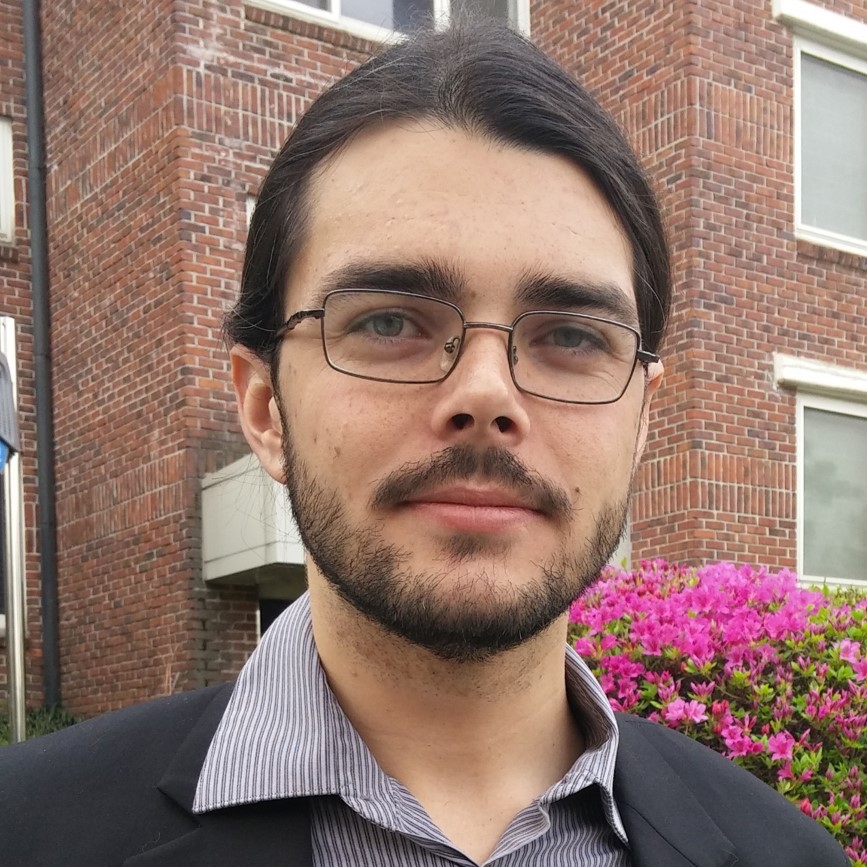

2014 Ph.D. Applied Physics, University of Michigan
2009 B.S. Applied Physics, Caltech
kscholte [at] usc [dot] edu
Kee Scholten is a postdoctoral scholar in the Biomedical Microsystems Laboratory at the University of Southern California. Kee graduated from the California Institute of Technology (Caltech) in 2009 with a B.S. in Applied Physics. He completed his Ph.D. in Applied Physics at the University of Michigan under Professor Edward Zellers in 2014, with a research focus on gas-phase microsensors for environmental monitoring and biomedical diagnostics. His current and on-going work entails the development of implantable microsensors for use in biomedical applications. His research explores the development of micro- and nano-technology for ubiquitous chemical and biomedical sensing, with a focus on microelectromechanical systems, including microfluidic transducers for chemical sensing and flexible electrochemical interfaces for neural-machine interfaces.


2015 Ph.D. Biomedical Engineering, USC
2009 M.S. Biomedical Engineering, USC
2008 B.S. Biomedical Engineering, USC
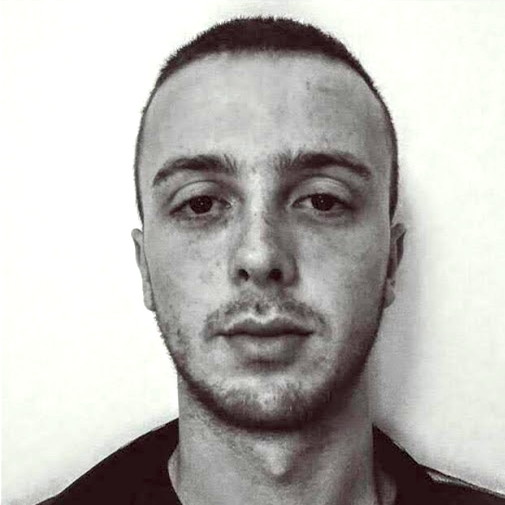

zssmith [at] usc [dot] edu
Spending a year at Meng’s lab as a VEST Research Scholar with the aim of working in neural interfaces. Working towards a PhD in Electrical Engineering from Imperial College London, England. PhD main focus is on adapting a microseismometer, currently bound to Mars on the InSIght mission, for expected conditions on other planetary bodies such as Venus or Europa. Has previously worked in groups at Tsinghua, China and Tokyo-Tech, Japan. Interests include: squash, fencing, surfing, chess and reading. Will always make time for a coffee and a chat.


2019, B.S. Biomedical, Electrical Engineering, University of Connecticut
gsoler [at] usc [dot] edu
Garrett Soler completed his bachelors degrees in electrical and biomedical engineering at the University of Connecticut (2019). His research interests include implantable devices and low power electronics for biomedical applications. In his spare time Garrett enjoys weightlifting, snowboarding, football, and learning how to fix his dying car because he's too cheap to take it to a mechanic.
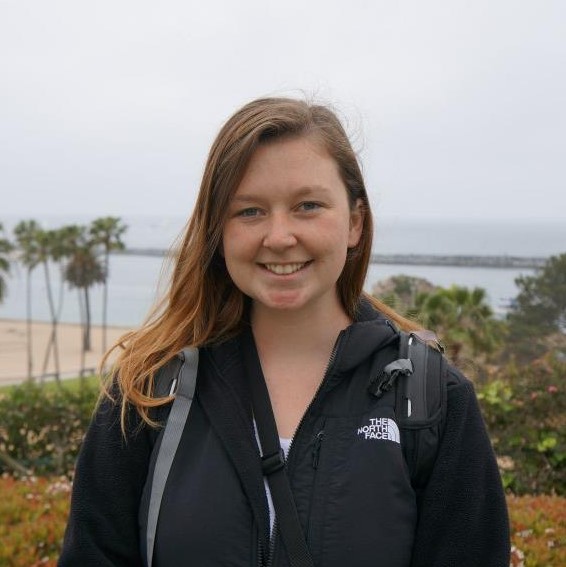

2014, B.S. Engineering, Harvey Mudd College
bthielen [at] usc [dot] edu
LinkedIn
Brianna Thielen completed her bachelor's degree in Engineering at Harvey Mudd College in 2014. Later that year, she began working for Second Sight Medical Products as an R&D Engineer, focused on the development of the Orion cortical prosthesis for artificial vision. In 2018, Brianna began her graduate studies in Biomedical Engineering at the University of Southern California, with research focused on polymer MEMS and implantable medical device development.
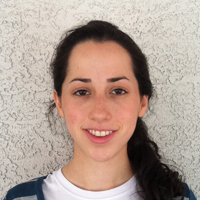

2018 Ph.D. Biomedical Engineering, USC
2012 M.S. Bioengineering, UCLA
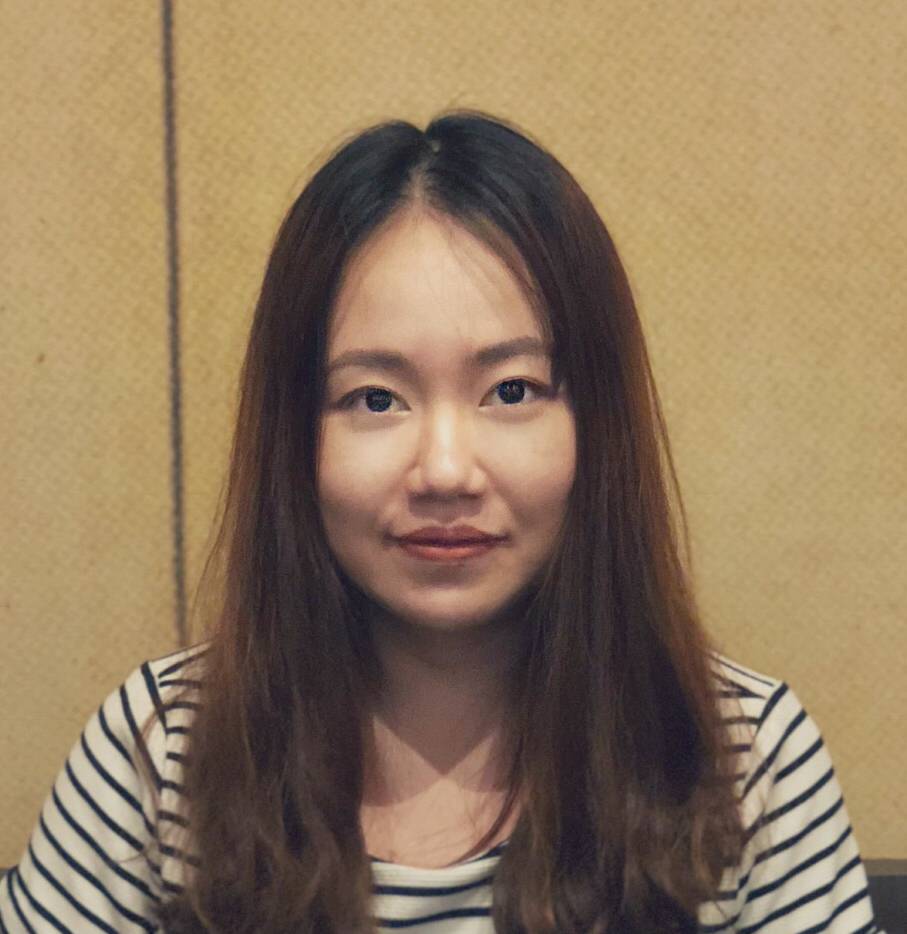

2017 B.S. Biomedical Engineering, North Carolina State
xuechunw [at] usc [dot] edu
LinkedIn
Xuechun finished her bachelor’s degree from the joint Biomedical Engineering department between North Carolina State University and University of North Carolina at Chapel Hill in May 2017. She was doing research to explore the structure of telomere protein related directly to aging. Her interest in medical devices was raised from the senior design project where the team made an affordable oxygen respirator for infants. She joined the BioMEMS lab at USC in 2017 as a Ph.D. student. During her time at USC, she hopes to develop devices that can help to better diagnose, treat and understand human diseases. She loves to ski, cook, and play video games in her free time.
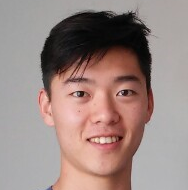

2015 B.S. Chemical and Biomolecular Engineering, Johns Hopkins University
eugenejy [at] usc [dot] edu
Eugene completed his bachelor's degree in 2015 at the Johns Hopkins University in Chemical and Biomolecular Engineering. While at JHU, worked on MEMS-based self-folding arrays in the Gracias Lab. Eugene also worked part-time at Scanogen, a startup focusing on POC genotyping. His experiences led to a summer internship in 2014 at Imec, in Leuven, Belgium where he developed single cell 3D microgrippers. Eugene loves to play soccer, guitar, and practice Taekwondo in his free time. His hometown is Cerritos so he is also very glad to be back in the west coast.
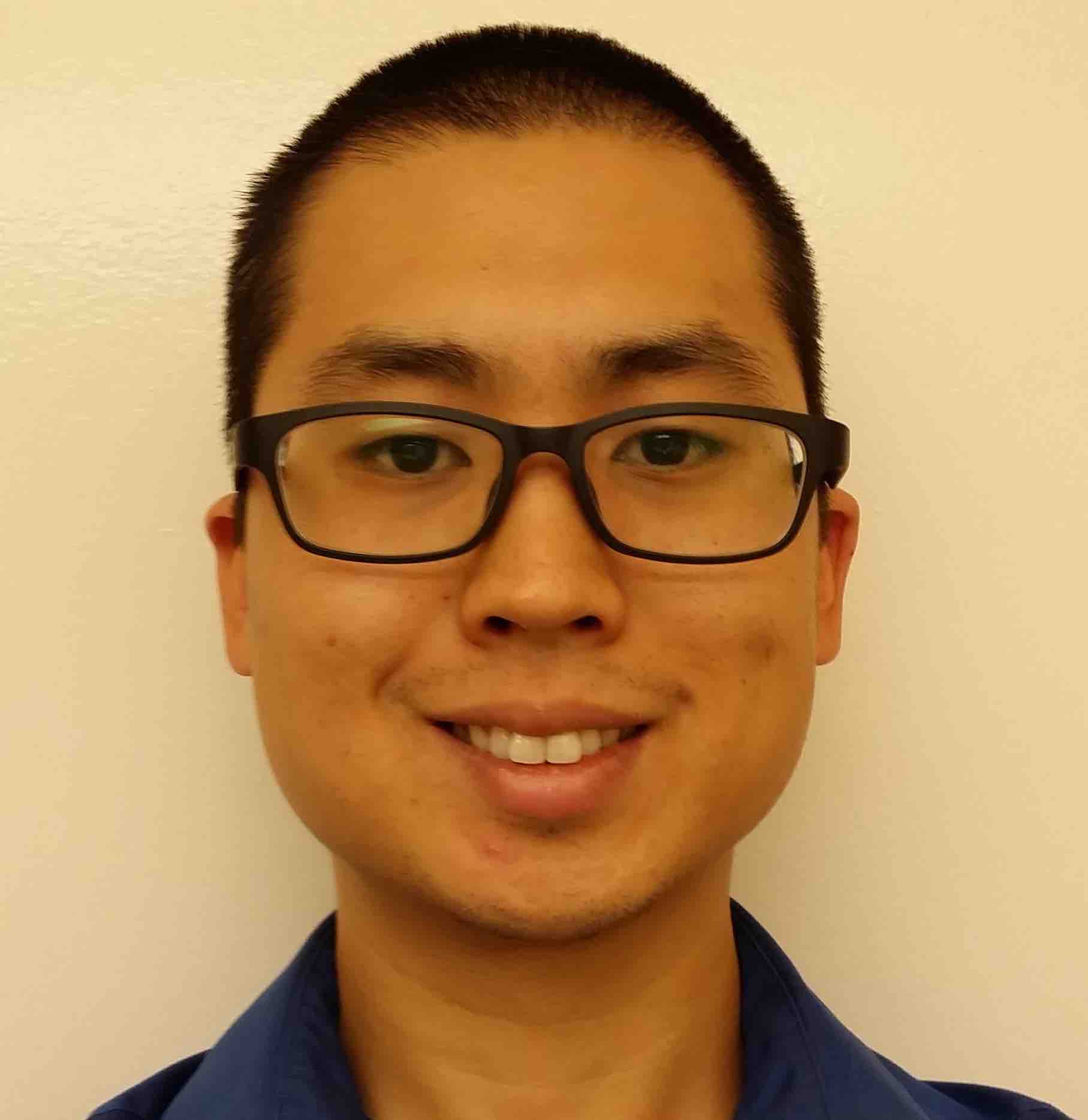

2008 B.S. Mechanical Engineering, UC Berkeley
james [dot] yoo [at] usc [dot] edu
James Yoo completed his bachelor’s degree in December 2008 at the University of California, Berkeley, studying mechanical engineering. In 2009, he started working for Second Sight Medical Products, Inc., in the manufacturing department, where his responsibilities included process development, equipment operation qualification, and process validation for the Argus II retinal prosthetic. In 2011, James and his newly wed wife Stella moved to Philadelphia where she attended medical school. From 2011 to 2013, James held several jobs in the train and automotive industries, and in 2013, he returned to the medical device industry at Stryker Orthobiologics. Here, he focused on process development, process validation, and equipment installation/operation qualification for a future orthopaedic product to be released in 2016. In 2015, James and Stella moved back to Los Angeles where Stella started her residency at the LAC+USC Medical Center and where James began graduate studies in biomedical engineering at the University of Southern California. His passions include coffee, music, television, and movies. On the side, he works out, plays video games, plays guitar, and bakes. For the past few years, he has also been searching for America’s best burger.


2016 Ph.D. Biomedical Engineering, USC
2010 M.S. Electrical Engineering, USC
2009 B.S. Biomedical Engineering, USC
